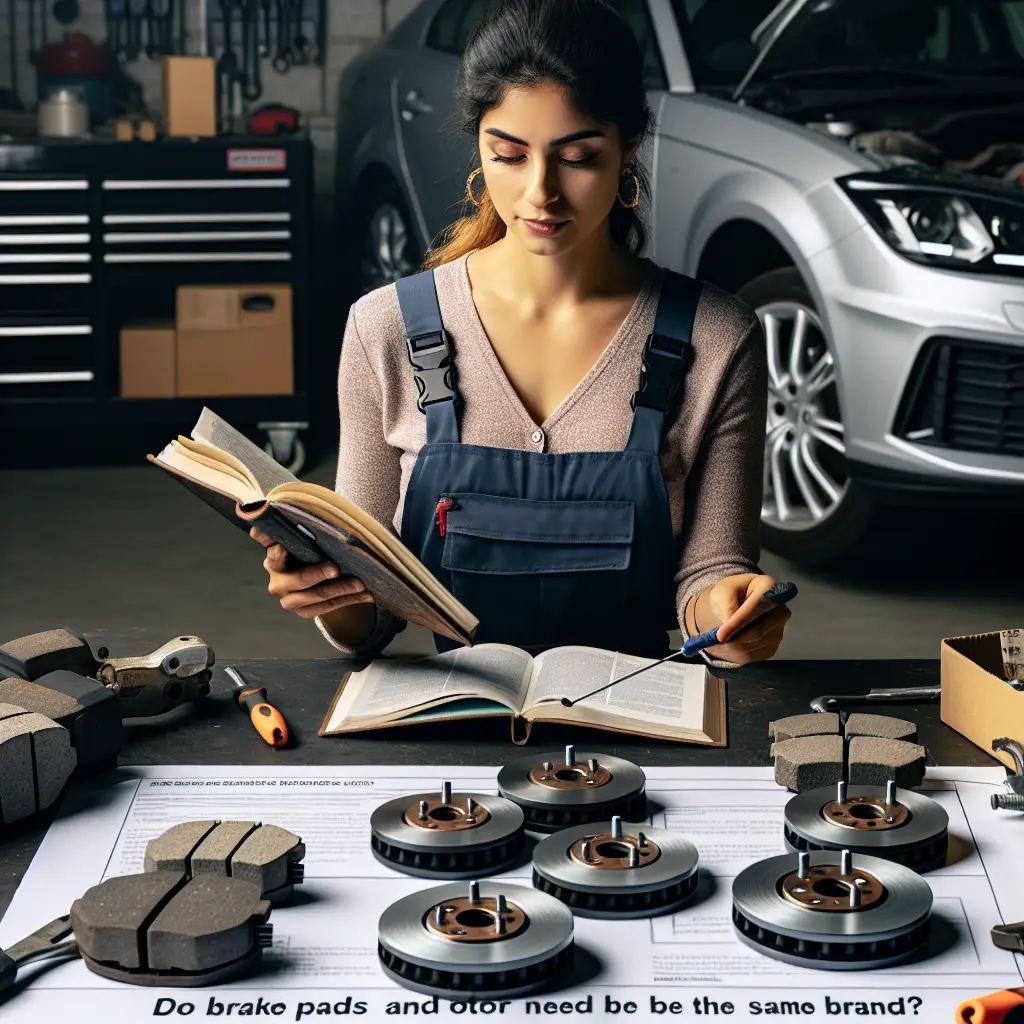Do Brake Pads and Rotors Need to Be the Same Brand? Uncovering the Truth Behind Optimal Brake Performance
When it comes to your vehicle’s braking system, there’s no room for cutting corners. It’s a matter of safety – not just for you, but for everyone on the road. That’s why a question often arises among car enthusiasts and everyday drivers alike: do brake pads and rotors need to be the same brand for peak performance and safety?
In this post, we’ll dive deep into the world of automotive care, unpacking the myths and facts surrounding mixed-brand brake components. Whether you’re a DIY car enthusiast or just someone wanting to ensure their vehicle operates at its best, you’ll find your answers here. So buckle up as we navigate the most important aspects of purchasing and maintaining your brake system.
Unmatched Brands: A Collision Course or a Safe Bet?
To paint a clear picture, let’s navigate through what brake pads and rotors are tasked with. Brake pads apply pressure and friction to the rotors – the large discs that you can sometimes see behind the wheels of your vehicle – which in turn slows down the car by converting kinetic energy into heat. It’s a highly synchronous process and any weak link in the chain can affect overall performance.
Now, is it crucial for these parts to match brands? The short answer is no. There’s no inherent need for brake pads and rotors to be from the same manufacturer in order to function correctly. Compatibility and quality are more significant factors than matching brands. What you should be wary of, however, is pairing parts that are not compatible with each other or with your vehicle. Different materials and manufacturing processes can lead to variable wear rates and performance characteristics which might affect the longevity and efficacy of your brake system.
Quality Over Brand: The Key to Reliable Braking
Your primary concern should be the quality of the parts you choose. Industry-leading brands like Bosch, Brembo, and others have a reputation for manufacturing reliable brake components – but don’t count out lesser-known manufacturers that may offer comparable or even superior products. Independent reviews and consumer feedback can be extremely helpful when determining the quality of a product. For instance, browsing through forums or checking out websites such as Consumer Reports can give you insight into the hands-on experiences of others.
Understanding Compatibility: It’s Not Just About Brand Synergy
While it’s not necessary for brake pads and rotors to be the same brand, they must be compatible. Every vehicle has specific requirements laid out by the manufacturer, which should be adhered to for optimal safety and performance. Using the wrong type of pad for your rotors, or vice versa, can result in a loss of functionality, increased wear, or even brake failure. Therefore, pay close attention to your vehicle’s specifications. Reputable parts suppliers and mechanics can provide guidance when you’re buying new components. Always ensure they are fit for your model and year, whether OEM or aftermarket.
The Impacts of Mismatched Components: A Closer Look
Choosing brake pads and rotors of different brands doesn’t automatically put you at risk, but a lack of compatibility does. If rotor and pad materials are mismatched, it can potentially cause:
- Premature wear on one or both components
- Reduced braking efficiency
- Increased stopping distances
- Abnormal noises such as squealing or grinding
Not only can these issues elevate your stress levels, but they can also weigh heavy on your wallet – leading to more frequent replacements and maintenance. To avoid these pitfalls, always ensure that the type of pad is appropriate for the rotor material, be it cast iron, steel or carbon-ceramic.
Installation Considerations: Ensuring a Smooth Ride
Proper installation is just as vital as the parts themselves. Whether you’re a seasoned gearhead or this is your first foray into brake component replacement, the importance of correct installation cannot be overstated. An incorrectly installed brake pad or rotor can negate even the highest quality parts’ advantages. If you’re not confident in your mechanical skills, there’s no shame in seeking professional assistance. Many auto repair shops are equipped with certified mechanics who can ensure that your vehicle’s brake system is installed correctly and functions safely.
The Bottom Line: Safety Should Never Be Compromised
At the end of the day, keeping your vehicle well-maintained and safe should be your number one priority. Do your due diligence; research the best parts for your make and model, and make your decisions based on quality and compatibility, rather than brand unity. There’s an abundance of information available online – from automotive forums to specialist websites like HubSpot – to guide you along your journey to safe and reliable braking.
Remember, while matching brand names can provide peace of mind for some, it’s not a necessity as long as the parts play well together. Don’t hesitate to seek expert opinions and always lean on the side of caution when it comes to vehicle maintenance. Your car’s braking system is its most critical safety feature. Treat it with respect and care, and it will do the same for you.
Closing Thoughts
If you take anything away from this article, let it be this: vehicle safety doesn’t start with brand names, it starts with informed choices. As you navigate the roads ahead, always stay informed, stay safe, and never compromise on quality when it comes to your vehicle’s brake system.
Do you have any experiences with mixed-brand brake components? Feel free to share them in the comments below. Your insights could be incredibly valuable to someone facing the decision you’ve conquered. Keep the dialogue rolling and, as always, drive safe!

